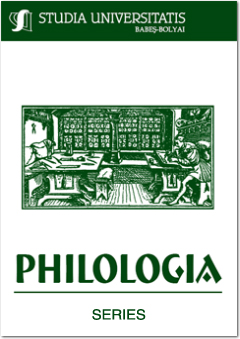GIAMBATTISTA VICO (1668-1744) UND DER BEGINN DER PRAGMATIK
GIAMBATTISTA VICO (1668-1744) AND THE BEGINNING OF PRAGMATICS
Author(s): Rudolf WindischSubject(s): Language and Literature Studies
Published by: Studia Universitatis Babes-Bolyai
Keywords: conception of the origin of language in the 18th century; mute ‘speaking’ in gestures; sign-language; poetical form of language; natural sciences; cultural sciences; social and cultural evolution.
Summary/Abstract: Giambattista Vico (1668-1744) and the Beginnings of Pragmatics. The following article may be considered as a contribution to a deepened understanding of the Neapolitan philosopher Giambattista Vico (1668-1744) and his major work, La Scienza Nuova (1725, 31744), disregarded by his contemporaries. Vicos approach to explain the creation of language with regard to the transformation of the early dumb mankind to a speaking, highly developed ‚verbal’ society may be perceived as the crucial point of his thinking. How did mankind finally succeed? People developed from a nonverbal, mute communication in form of gestures and signs (italian “segni”) referring to the ‘objects’ of the surrounding world by means of heraldic or metaphoric signs, a highly artificial ‚poetic‘ language. This first language of mankind, a beautiful speaking, was corrupted by the later drawing up of logically conceived grammars. Vicos thesis is ‘fantastic’, ‘idealistic’ in the literal sense of word, but it represents, as we believe, the first approach to explain language creation in terms of pragmatic conception (cf. greek poiein ‘to make, to create’). Vico won acceptance only at the end of the 19th century, most of all by the Italian compatriot Benedetto Croce (1866- 1952), who pointed out the merits of Vico with regard to methodologically important division of cultural studies from natural sciences.
Journal: Studia Universitatis Babes-Bolyai - Philologia
- Issue Year: 54/2009
- Issue No: 4
- Page Range: 29-46
- Page Count: 17
- Language: German

